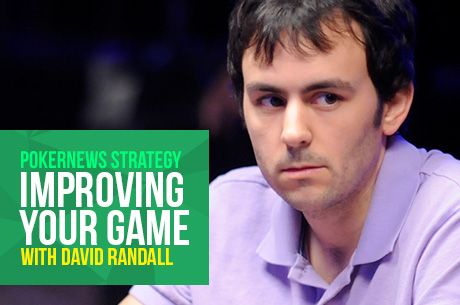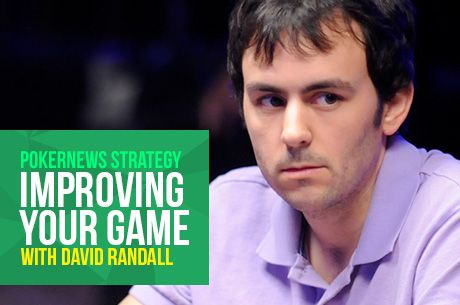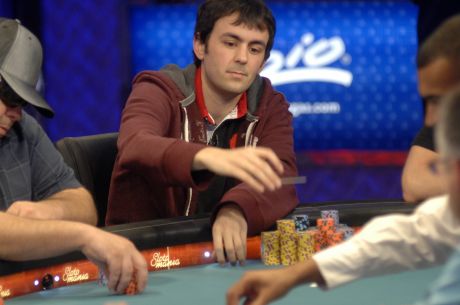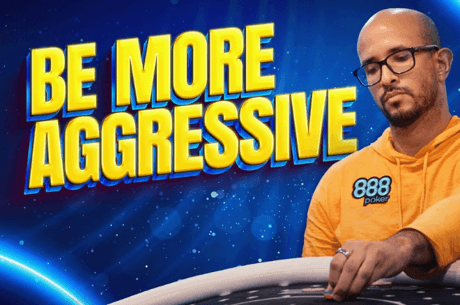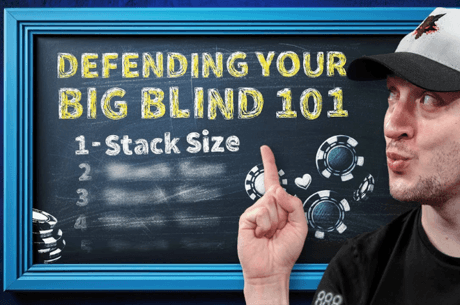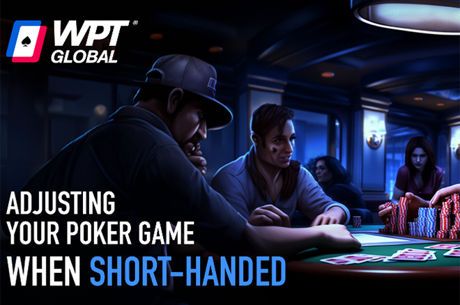Improving Your Game with David Randall, Vol. 7: Put Opponents on Ranges, Not Specific Hands

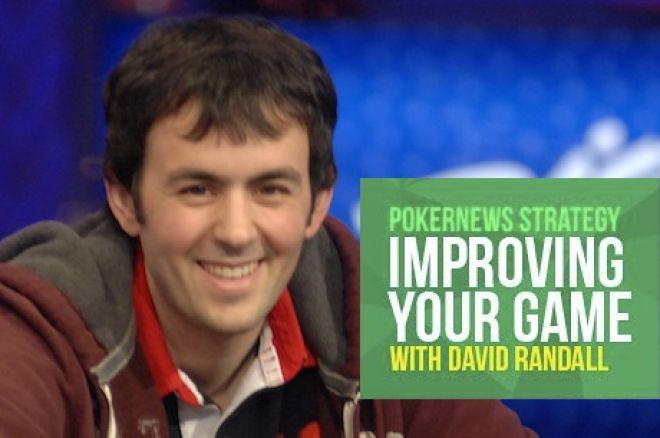
I have recently had a number of recreational players approach me about the importance of ranging and how it affects decision-making. It seems that they feel like they can do just as well following their gut and putting their opponent on a hand. Today we are going to explore why this certainly is not the case.
I would first like to explain why I think players to prefer to “play with their gut and put their opponents on specific hands.” In mainstream culture, the ability to read someone’s soul and guess a player’s exact two cards has been romanticized. People see this occurring in movies and on poker shows on TV with hole card cams. How many times have you heard someone watching a broadcast tell you how obvious it is that someone has exactly what the player is shown to have? They think they can do the same thing themselves in person with no hole card cam.
While in theory it would be great to pinpoint our opponents’ exact hole cards, this is not realistic in part because in a lot of situations they would play many different hands the exact same way. For example, it is foolish to put your opponent on exactly AxKx in hand when that player would play AxQx+ and 9x9x+ identically. You may feel like a genius when your opponent does have exactly AxKx, but you will likely misplay your hand if the player has any of the other hands in that range.
A common symptom of players who “put an opponent on a hand” is being overly optimistic in their range assessment. I was playing with a guy the other day whom I saw on two different occasions call three streets on a Jx10xXxXxXx board with 8x8x and then again with 6x6x. Both times he was correct and won the pot, then afterwards proudly said “I knew you had ace-king.”
Success in this situation is the worst poison for the progress of this guy’s game, because it makes it impossible for him to see the error of his ways. In reality, his opponent would be value betting AxAx, KxKx, QxQx, any hand with a jack, sets, or two-pair hands the exact same way. The same could be true with super strong hands as well.
Let’s say for example we have 10x10x on that Jx10xXxXxXx-rainbow board and we are out of position. Quite often I see players raising in this spot while putting their opponent on — or praying they have — pocket kings or pocket aces, yet only succeed in folding out hands that could have continued bluffing. It’s almost as if the attitude is that it would be convenient for our opponent to have an overpaid here, so that is what we will put them on. If we considered their entire range we would lean more towards check-calling this flop to allow our opponent to try to barrel the turn (because by check-calling our opponent can optimistically think we are always marginal).
It’s amazing to me how poker is a language and how a skilled player and an unskilled player can match up in a hand and it’s almost like they’re speaking different languages. As a result, sometimes the unskilled player will accidentally do something to confuse the skilled player into making a mistake.
To illustrate this in action, let’s look at a hand from a $2/$5 no-limit hold’em cash game. Two people limp in for $5 at a table where everyone is $1,000 effective. A player I’ve seen around and respect as being skilled makes it $30 on the button with KxKx. The big blind calls with A♠3♠ and both limpers call as well. The flop comes 3x3x5x and it checks to the button who bets $100 (into just over $120). The big blind who has flopped trips then makes it $350 and the limpers both fold. The skilled player then calls the raise, and calls the all-in after the dry 8x turn.
In this hand the skilled player made the mistake of (optimistically) thinking that the other player thinks like him and would never raise with a 3x there but would check-call instead. In reality, it was just what it looked like. His unskilled opponent had a strong hand, so he raised with it. It’s as simple as that. Had the skilled player attempted to assess his opponent’s range, he would have realized that there really is no bluffing hand that makes sense. He’d see that he beat nothing in his opponent’s value range and would have folded to the flop raise like he should have.
As you can see, this leak is capable of showing its face in many different forms and situations. The key to avoiding it is to understand the importance of ranging and attempting to do so at all times. Once you begin to improve that ability you begin to make steps towards being a world-class player.
In addition to writing this strategy entry I would like to share a little about myself in regards to what I’ve been up to. I recently got asked to host a reality TV show that involves poker. We have shot the pilot episode — click here for a preview and to learn more about the show. I must admit, it was a pretty amazing experience. I had a great time hanging out with Jay (the director) and the cast and getting my time in the spotlight. The general idea of the show is that there will be five people living in a house together who will be taught and mentored by me. Once they are ready, they will face up against five local pros. During different seasons those staying in the house will be taking on pros from different cities. If you are interested in potentially getting involved in the show, you can email Jay at [email protected].
I hope you guys got a lot out of the entry in regards to ranging. I’m signing off until next time I see someone make a massive mistake (maybe myself) and feel the need to express my disdain in written format.
~David “Big Tyme” Randall
Get all the latest PokerNews updates on your social media outlets. Follow us on Twitter and find us on both Facebook and Google+!

